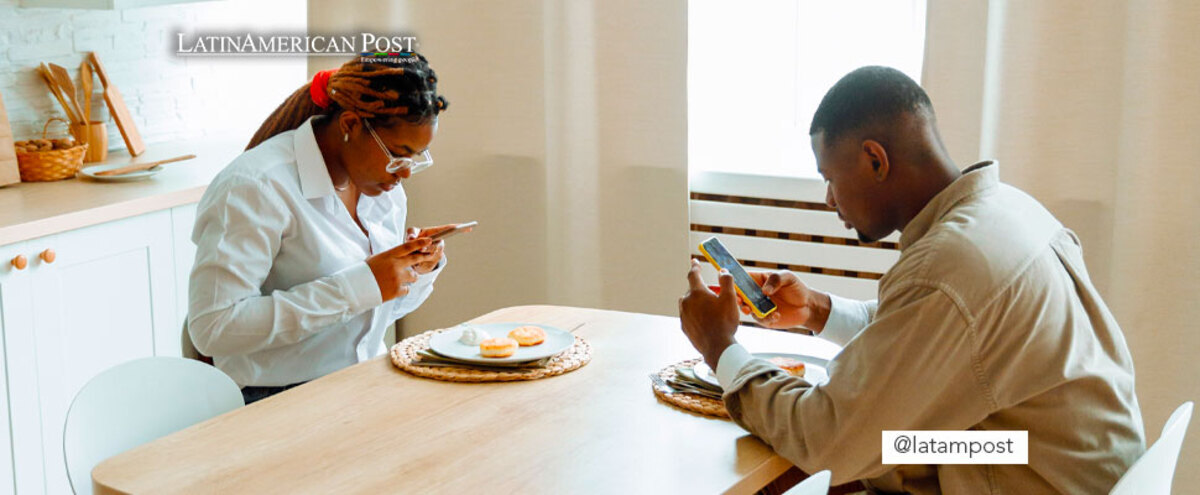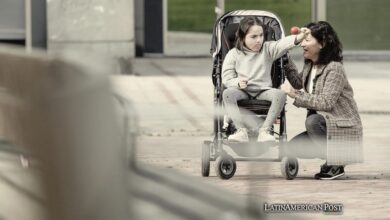Hyperconnection: The Problem of Always Being Online
The new technologies facilitate many tasks and daily activities, they allow expanding the circle of friends, acquaintances, followers; access general information and know facts in real time, but you can lose control over them. We tell you what hyperconnection is

Photo: Pexels
LatinAmerican Post | Yenny Rodríguez Barajas
Listen to this article
Leer en español: Hiperconexión: el problema de estar siempre en línea
Being up-to-date with the trends in social networks, knowing news events minute by minute, or following the lives of celebrities or influencers step by step, is a daily routine for many people. Although this connects them with the virtual world, sometimes it disconnects them with their closest environment.
Spending many hours in front of a laptop, computer, mobile phone (or any other device) following, reacting or commenting on different topics is generating health complications for those who have these practices. It may even be the cause of family and/or work problems.
We recommend you read: What is Phubbing and How Can it Affect Us?
According to experts, the ability to communicate assertively is being lost, going from real personal relationships to liquid ties, that is, superficial ones. Hyperconnectedness, as being overly connected to devices is known, is not a subject to be taken lightly.
According to Guido Sánchez Santur, a professor at the Faculty of Communication Sciences at the UPAO – Antenor Orrego Private University in Trujillo, Peru, "seen from a productivity perspective, hyperconnection has a significant impact, since people interact with each other and obtain information up-to-date and immediate, and, in business, it speeds up business relationships by staying in permanent contact with customers”. However, the expert added that there are several harmful factors for health and personal relationships in hyperconnection. “Those who are hyperconnected move away from their environment, call them co-workers, family, friends, because there is a tendency towards individualism. For this reason, when they are forced to disconnect, they feel anxious and stressed,” explained the expert.
It is true that new technologies facilitate many tasks and daily activities, allow you to expand the circle of friends, acquaintances, followers; access general information and learn facts in real time, but losing control over them brings more negative consequences than benefits. Stuart Crabb, CEO of Facebook, in an interview with the New York Times, advised to disconnect and stop using (from time to time) computers and smartphones. He considered that people should be aware of the effect that excessive use has on their performance and their relationships.
Learning to consciously connect and disconnect is key
For Mar Cabra Valero, a Spanish investigative journalist and specialist in data analysis, co-founder of The Self Investigation, “the problem is not the connection, but connecting consciously or intentionally. That is, we take control of that connection, and not, let it control us. That is the learning we have to do.” He added that in a world where there are so many technological stimuli, the key is deciding how we want to interact. "How do we want to relate to email, WhatsApp, social networks and what are the agreements we establish so that this relationship is healthy for us and effective for communication with others".
According to a study from the University of Salamanca, Spain: " On the need to disconnect: some data and proposals" , the defense of digital disconnection is also supported by the benefits it entails for the recovery of attention capacity, since Browsing the Internet requires a particularly intensive form of mental multitasking, since the Internet is, by its very design, a system of interruption and fragmentation of attention.
It highlights that, thanks to the periodic disconnection, it would make the moments of online connection more enriching, since being tied to the incessant flow of information, paradoxically, reduces productivity and efficiency. It is not about putting the devices aside, or using them only for work or school activities, but about having self-control. Master the devices (not them us) because they are very useful tools if we know how to use them, setting limits to be online and disconnect when we must. Finding the balance between virtuality and real life. Thus, it is also essential to enjoy other spaces that do not require the mediation of digital devices such as cooking, taking a walk, going to the countryside, doing crafts, reading or having a coffee with a friend.




